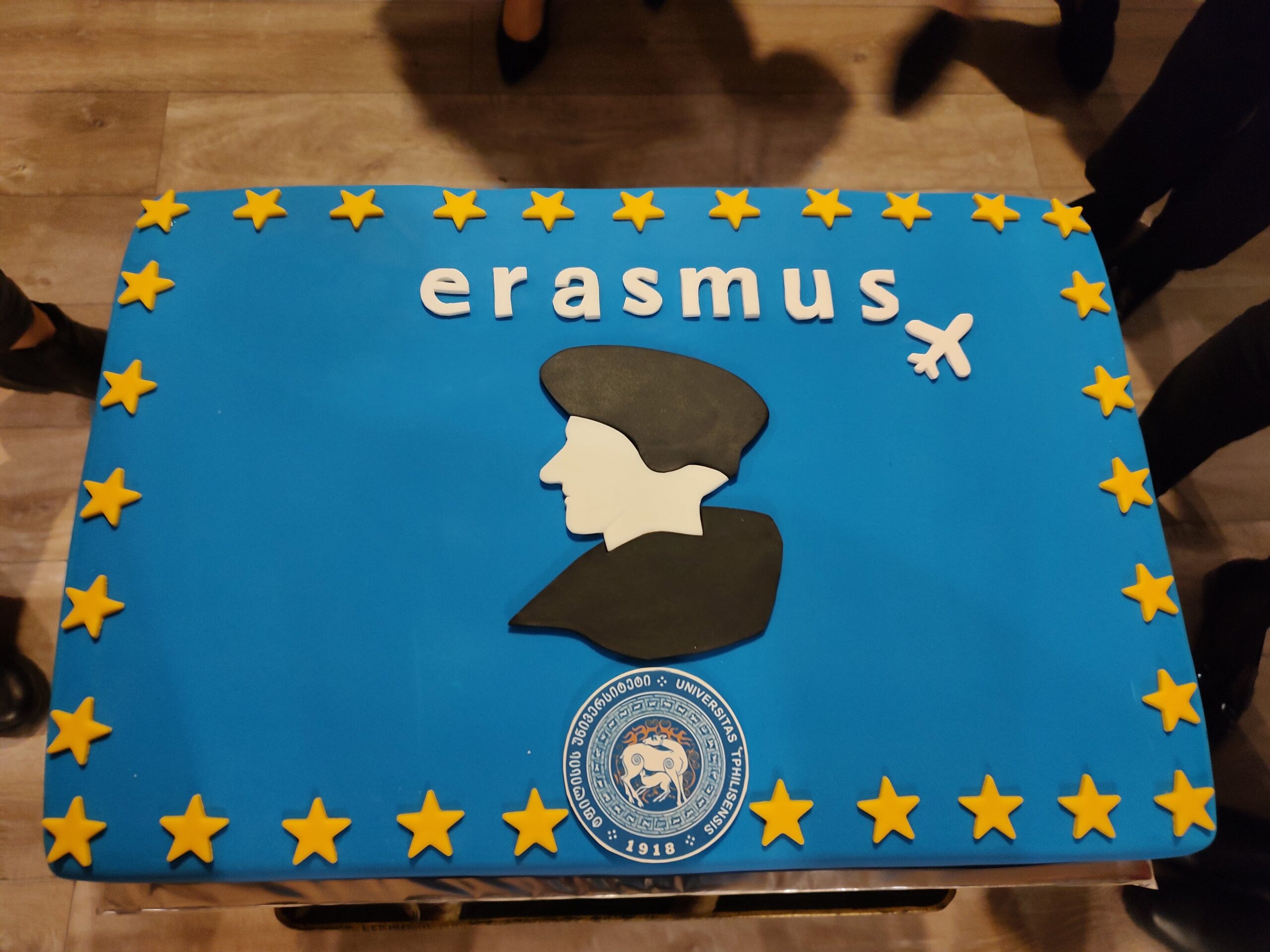Being an Erasmus student before the pandemic means a training experience linked to leisure and enjoyment. Erasmus students mobilized counting on facing the culture shock typical of a period of adaptation to culture, new routines and social relationships. However, since April 2020, the pandemic without stopping the illusions of the Eramus + has added new challenges that hundreds of young people have to overcome, facing fears, uncertainties, psychological and pedagogical problems that have been generated from COVID-19.
“It’s taking a lot for me to be able to concentrate and sit down to study because of the anxiety that being locked up generates in me” an Eramus student confessed to us by email in time of confinement. “I like to be informed of the situation regarding COVID-19 and currently what I feel is quite helplessness and lack of control. I am afraid of the consequences that all this could generate and that makes it difficult for me to relax. I feel that at any moment I am going to lose my calm and explode. Is there any way for these negative thoughts and this discomfort not to take hold of me and paralyze me?”, A university student recognizes us and asks in a Web space enabled for attention in crisis from the Psychological Attention Service (SAP) of the University of Cádiz.
Confinement, virtual teaching or new forms of evaluation worry many college students. The demand of Eramus + students has been more related to greater insecurity due to the distance from their family, doubts regarding the possibility of returning or financial problems in the continuity of their stay. In order to minimize uncertainty and anguish, many universities have activated or reinforced Psychological Attention Services focused, not only to students, but to the entire university community. University psychological care services have played an important role in supporting this pandemic period of time.
Telematic psychological intervention and guidance has been essential in periods of crisis. In those moments that we can be alone, in a situation of confinement, isolation and with many doubts about how to manage emotions; The SAP team, as well as other University Services for Psychological and Psych-pedagogical Attention, have made available to college students tools and means for counseling and psychological support.
It is normal to be afraid, because the pandemic is something for which no one was prepared. This last year has allowed us to know and learn aspects that we must control in periods of pandemic.
Classes may now be virtual or blended. You may have returned home, where you miss your peers and find it difficult to study. Or maybe you stayed and you care about your family. You may be juggling many family members to keep your academic responsibilities up to date. It is possible that someone in your family is unemployed or in financial difficulties. If you are a college student, you probably feel anxious, sad, and insecure. These feelings are normal. And there are ways to decrease your stress.
Here are some recommendations.
Practice self-care. Basic self-care will keep your immune system strong and your emotional behaviors balanced. Sleep enough. Get regular exercise. Eat well. Try mindfulness apps. Find activities that involve different parts of yourself. Do something physical like dancing. Occupy your mind with puzzles or games. Look for tasks that you can postpone or simply remove from your to-do list.
Find ways to focus. You may feel unmotivated now. Recognize that current circumstances are difficult for everyone. Don’t judge yourself; just do the best you can. Establish a routine. Get up, go to bed, and do your work at the same time every day. Frequent breaks can help you get back to work. Try to create a differentiated workspace from where you sleep, and reserve your rest area for sleeping. If your family members are distracting you, use the “I” phrases to explain the problem: “I’m worried about my test next week,” and work with them to develop solutions.
Seek social support. Your classmates have probably scattered, and having to stay home can make you feel lonely. To combat isolation, get together with your college classmates through technology. Even something as simple as making a call or turning on your webcam during virtual classes can help you feel more connected. Help Others Cope Your classmates and family are anxious too. You don’t have to fix their problems. It is enough to let them know that they are not alone. Make sure you address your own concerns separately so that you can focus on your responsibilities. Ask for help if you need it.
Find ways to handle disappointment. Whether it’s an internship, the TFG / TFM defense or the graduation ceremony, important events may not happen this year. Accept those losses, and then rethink how you think about these life events. Think about how you can celebrate what you have accomplished. Find new ways to celebrate. Consider holding important events when it is safe to do so.
Limit your media consumption. Of course, it is good to stay informed, especially about what is happening in your area. But too much news, especially social media, can increase your anxiety. To avoid feeling overwhelmed, set limits on media consumption and mobile phone use. Reduce misinformation by relying on reputable sources such as your Faculty website.
Focus on things you can control. Your classmates, friends, or family may be not following the rules about physical distancing or doing other things that increase your stress. As long as you follow the rules and stay safe, recognize that you cannot control what other people do. You can only control your own thoughts, feelings, and behaviors. Another thing you can’t control? The uncertainty about what comes next. Instead of worrying about the ambiguous future, focus on solving immediate problems.
We invite you to visit these web addresses related to university psychological counseling:
Signed: Esperanza Marchena e Israel Mallart (SAP UCA)










Hello,
In Poland, the problem of psychological help is also commented on. In the third consecutive semester, students carry out the program at home. Lack of contact with peers is not conducive to mental health. The feeling of alienation widens.
The Polish government together with the Students’ Parliament of the Republic of Poland are trying to meet the psychological problems of Polish students.
“PSRP comfort zone” is a project aimed at all students from Poland, which relies on psychological support. As part of this initiative, everyone has the opportunity to use individual online help and participate in webinars conducted by specialists. Thanks to this project, you can get answers to frequently bothering questions, incl. how to deal with anxiety, how to use time productively and what signals may indicate poor mental health of both ours and our loved ones. Everything is worth talking about!
The project is carried out as part of a task commissioned by the Minister of Science and Higher Education.
People in need of support, I encourage you to check the website:
https://www.gov.pl/web/edukacja-i-nauka/strefa-komfortu-psrp–wsparcie-psychologiczne-online-dla-studentow
https://wsparciepsychologiczne.psrp.org.pl/
Greetings from Poland!
Psychological counseling is a very important service to be offered to Higher Education students in general. More specifically, Erasmus ones, especially in times of pandemic, are to be considered particularly vulnerable and for this reason, such support should always be easily accessible, Also, peer-to-peer sharing can prove paramount for emotional wellbeing… This forum indeed has the purpose of facilitating the encounter and exchange of Erasmus-involved people 🙂
I can only imagine the feeling of being far from home for all those students who found themselves living their Erasmus experience as soon as the pandemic hit. But, now that we are young, let us not lose our desire to travel and experience new things by this virus. Thanks to RIPEC we are not alone, even in such bad times.
Thank you,
Alessia
… [Trackback]
[…] Here you can find 56572 additional Information to that Topic: ripec-project.eu/discussion/psychological-care-of-eramus-students-in-time-of-pandemic/ […]
… [Trackback]
[…] Information on that Topic: ripec-project.eu/discussion/psychological-care-of-eramus-students-in-time-of-pandemic/ […]
… [Trackback]
[…] Info to that Topic: ripec-project.eu/discussion/psychological-care-of-eramus-students-in-time-of-pandemic/ […]
… [Trackback]
[…] Find More Information here to that Topic: ripec-project.eu/discussion/psychological-care-of-eramus-students-in-time-of-pandemic/ […]
… [Trackback]
[…] Read More here on that Topic: ripec-project.eu/discussion/psychological-care-of-eramus-students-in-time-of-pandemic/ […]
… [Trackback]
[…] Find More on to that Topic: ripec-project.eu/discussion/psychological-care-of-eramus-students-in-time-of-pandemic/ […]
… [Trackback]
[…] Here you can find 44912 additional Info to that Topic: ripec-project.eu/discussion/psychological-care-of-eramus-students-in-time-of-pandemic/ […]
… [Trackback]
[…] Read More Info here on that Topic: ripec-project.eu/discussion/psychological-care-of-eramus-students-in-time-of-pandemic/ […]
… [Trackback]
[…] Info on that Topic: ripec-project.eu/discussion/psychological-care-of-eramus-students-in-time-of-pandemic/ […]
… [Trackback]
[…] Here you can find 56734 additional Information to that Topic: ripec-project.eu/discussion/psychological-care-of-eramus-students-in-time-of-pandemic/ […]
… [Trackback]
[…] Read More Info here to that Topic: ripec-project.eu/discussion/psychological-care-of-eramus-students-in-time-of-pandemic/ […]
… [Trackback]
[…] Information to that Topic: ripec-project.eu/discussion/psychological-care-of-eramus-students-in-time-of-pandemic/ […]